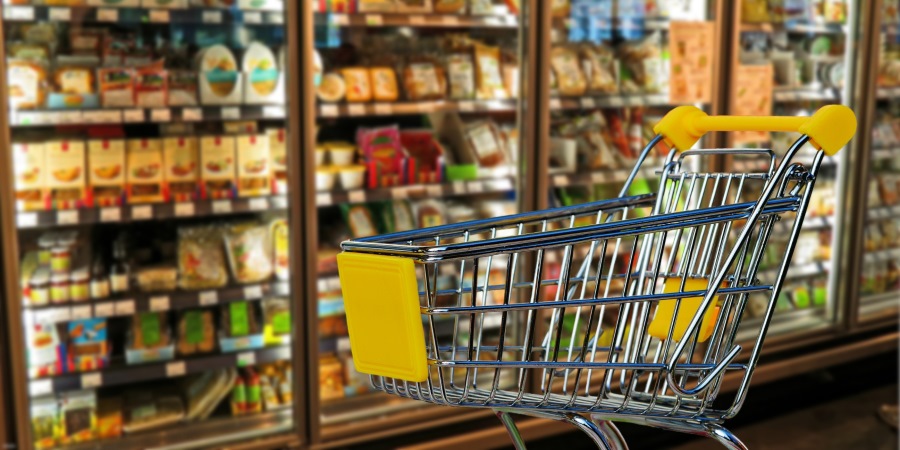As Brexit uncertainty intensifies, the latest grocery market share figures, published from Kantar Worldpanel, shows year-on-year supermarket sales growth of 1.9% during the 12 weeks to 24th February 2019.
Overall, grocery volumes rose by 1.2% in the 4 weeks which is no increase compared with recent months, and hard-to-stockpile fresh and chilled foods made up 39% of the value of the average British shopping basket.
Fraser McKevitt, head of retail and consumer insight at Kantar Worldpanel, comments: “Despite one in ten shoppers saying they have started stockpiling groceries, and a further 26% reporting that they are considering doing so, this has not been borne out in sales just yet.”
Aldi was the only retailer to report double-digit growth during the past 12 weeks, increasing sales by 10.0%.
McKevitt explains how 10% of the population bought chocolate, wine, steak, shellfish or a chilled desert from Aldi during the week of Valentines Day, helping it increase market share to 7.6%.
Co-op attracted an additional 244,000 shoppers through its doors to help boost sales by 3.6% and increase its share of the total market to 5.9%.
Visitors to the convenience retailer spent £13 million more on fruit, vegetables and salads compared with the same time last year.
Asda and Sainsbury’s verdict pending
Asda and Sainsbury’s now have a potential combined market share of 31.2% as they await the final CMA ruling on their proposed merger.
Fraser McKevitt comments: “Asda continued its run of uninterrupted growth since April 2017, increasing sales by 1.0%. Own label lines at the supermarket continued to outperform brands and an increase in the number of online shopping trips helped boost growth overall.
“Sainsbury’s sales fell by 1.0%, reducing its market share by 0.5 percentage points to 15.7%. Despite this, its premium Taste the Difference range proved popular – sales rose 4% and the products found their way into a quarter of all Sainsbury’s shopping baskets.”
Tesco achieved growth of 1.3%, helped by customers buying 2% more items on each visit. Overall, Tesco’s market share fell by 0.2 percentage points to 27.7%.
While Morrisons’ market share dropped slightly to 10.5%, sales were up 0.8%. Morrisons sells 43% of its goods on promotion – a higher proportion than any other supermarket.
Ocado and Waitrose share shoppers
As Ocado’s new partnership with Marks & Spencer was announced, confirming they will jointly supply the retailer’s products from 2020, sales at the online specialist rose by 3.4%, holding market share at 1.2%.
Waitrose reported growth of 1.0%, its strongest performance since August 2018.
Fraser McKevitt comments: “There is greater overlap between the Waitrose and Ocado customer bases than those of any other grocers – 41% of Ocado shoppers also visited Waitrose in the past 12 weeks.
“It remains to be seen how many of these are more loyal to the Waitrose product range and how many value the Ocado delivery service specifically – with or without its original partner.”
Lidl’s sales increased by 5.4%, with an increased market share of 5.2%. Meanwhile sales at Iceland rose by 1.7%, with the retailer holding market share at 2.2%.









